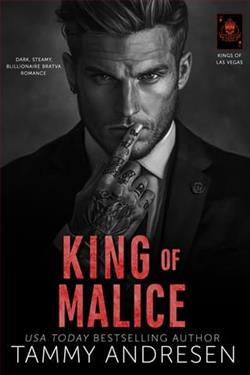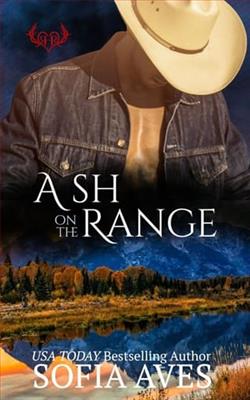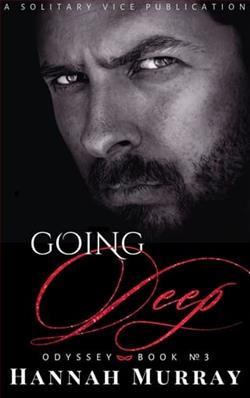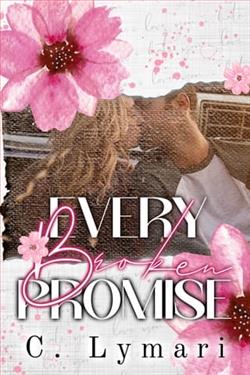Page 35 of The Dragon Ring
“Fine, thank you.” I paused. “How many of us are going?” Anything to change the subject.
“Fifty, and you. All warriors. Theodoric and his men, and forty of ours. Enough to make any raiders we might come across think twice before attacking us. Few enough to be able to move swiftly. Viroconium is at least four days ride from here, and our journey is of the most urgent kind.”
I wanted to know more. I had questions, but there wasn’t time.
His horse spun away from mine, and I was alone amongst a throng of riders I didn’t know. Searching for Bran or Tegid, I found nothing but grim faces I couldn’t remember having seen before beneath heavy helms. Faces that would have been out of place in my twenty-first-century world, even amongst the armed forces. They looked what they were– tough, hardened killing machines, men for whom warfare was the most important thing in their lives. If the good guys looked like this, what might the bad guys, the Saxons, look like?
Arthur rode through the milling riders, his shield with its rampant black bear hanging from his saddle. Theodoric, slightly underhorsed on a heavily built brown cob, pressed up close on one side of him, Cei on the other. Arthur raised his gloved fist above his head. “To Viroconium,” he shouted above the hubbub, and started down the cobbled road toward the main gateway. Behind him, the rest of the riders fell in, me included, Merlin by my side like the guard dog I suspected he was. Shaking him off would not be easy. If I went missing he was going to notice.
We passed beneath the guard tower and emerged through the gates onto the steeply sloping hillside. Before us, the road snaked down through the encircling ring ditches and banks, toward the farmland. The sun was already beyond its zenith, and we had a long ride ahead of us.
I was disappointed in my plan of escape.
We didn’t take the road I’d hoped for, through the forest toward Ynys Witrin. Instead, we followed a track that branched northwards, across open grassland where sheep grazed in little groups, and smoke rose from village rooftops.
Once on the flat land, the horses quickened their pace and broke into a canter, clods of mud flying. I’d ridden without stirrups before, and even bareback, so this wasn’t too difficult, but the muddy ground underfoot made me nervous my horse would slip and fall, and I was unused to being part of such a large group. After about a mile, we slowed the horses and let them walk on a long rein until their breathing returned to normal. Then everyone slid down out of their saddles to walk beside the horses for another mile.
I was at the very back of the column with Merlin. Without his company it might have been easy to gradually fall behind and then slip away, but he dogged my footsteps.
“We march like the Romans did,” he explained, walking beside me in the mud. “Gallop a mile, walk a mile, get off for a mile. It saves the horses, and it stops us getting too stiff in the saddle. We don’t trot. Too uncomfortable.”
“In my time we still ride but only for pleasure,” I said, rubbing my horse’s sweaty ears. “And we have something that makes riding a lot easier. We have stirrups.”
He raised his eyebrows. “What’s a stirrup?”
“It’s an iron loop on the end of a leather strap that a rider’s foot goes in. There’s one on each side of the saddle for getting on, like a step, and when a rider’s mounted, he can rest his feet in them. It stops the rider’s legs aching so much and it makes trotting much more comfortable. I can draw a picture of one. If I’m going to do much more riding, I want someone to make stirrups for my saddle.”
Was that me acknowledging I was stuck here?
“Sounds interesting,” he said. “I’d like to see your picture.”
My picture. If I was at home, I’d just have done a quick internet search on my phone and shown him a photo of a stirrup. Job done. If I’d had my phone. I’d quite forgotten about it. Cottia still had it. My coat and jeans and hoody as well. Had she hung onto them because she thought them so strange, or in case I wanted to put them back on again? She’d given me back my underwear, but that was badly in need of another wash. What did Dark Age women wear as undergarments? I could see I was going to have to find out some time soon. There was only so much wear lacy knickers could take.
Thinking about my phone, left behind in Din Cadan, made me angry with myself. Too much was going on. I couldn’t keep track of every thread and it was making me careless. Now I was stuck without it, whatever actual good it would have done me. I was beginning to doubt I would ever get back to my world. That thought, which I’d been shoving to one side and ignoring, swept back over me in a wave, leaving my stomach with a hollow ache and tears springing in the corners of my eyes. I looked away from Merlin and gave them a surreptitious wipe with my sleeve.
“Mount up,” came a shout from the front of the column. I had no more time to dwell on my predicament. Merlin gave me a leg up into the saddle, then leapt onto his own horse. We cantered again, the wind whipping my plait and cloak out behind me. It was exhilarating, and despite the way I felt, I couldn’t help but enjoy it, even though I also couldn’t help but think a hard hat would have been a good idea. It had been drummed into me in the riding school as the most important part of my riding gear.
My horse’s hooves thundered, and ahead of me the other riders urged their mounts on with whoops of encouragement, as full of enjoyment as I was, despite their gloomy mission. When we finally pulled up at the edge of a forest, the horses were sweating and snorting, clouds of steam rising from their slick coats, and I was well splattered with mud.
“Now we walk.” Merlin brought his horse next to mine. The constant guard dog.
I looked over my shoulder. Din Cadan was just a distant hill, hazy in the autumnal damp, hidden now as the forest closed over us, and the path wound beneath bare, wintry branches. Our horses’ hooves swished in the dead leaves underfoot and I pushed thoughts of home out of my head.
In this way, a good three hours passed before we came to something I would call a proper road. In front of us, the road ran away straight and paved to left and right, its surface gently curving to a deep ditch on either side, wheel ruts graven in the gravelly surface. A proper Roman road. I racked my brains for which it might be, trying to recall the map of Roman Britain my father used to have on the wall in his study. Maybe the Fosse Way, which led all the way from Exeter in the south-west to Lincoln in the north-east.
“This’ll be better,” Merlin said. “We stay on the Roman roads all the way to Viroconium. The Romans knew how to build a road to last. We’ll make faster time now.”
He was right. We did make better time on the Roman road. It led straight as an arrow across farmland, through forest, up and down hills, across fords and over slabbed stone bridges. In the distance, farms and villages and small fields checkered the landscape, smoke rising from every hearth fire. But we didn’t meet anyone. It was winter; sensible people were not about. Britain had ground to a halt with the advent of the cold wet weather.
Before long, we came upon the tumbled ruins of a Roman way station that must once have boasted an inn and changes of horses for passing travelers. Rank grass grew between the fallen stones. Buildings where men once sat down to eat and drink now stood open to the sky.
I was struck by how alien the landscape seemed. And how empty. It felt as though I were exploring somewhere far distant from the Britain I knew, with its endless tarmac, its road signs, cars, houses, ugly pylons marching across the countryside and countless people. I was a stranger in a strange land, and nothing I saw could quiet my uneasy mind.
Chapter Ten
We arrived atCaer Baddan, modern day Bath, just as the sun set. The good weather had lasted all day, and only now were clouds mustering on the pink horizon. I’m not sure what I’d been expecting when Merlin told me where we were heading that first day, but it wasn’t what we found. I suppose I’d assumed there’d be a sort of mildly decayed Roman township, its people still clinging doggedly to the ways of their ancestors. I never for a moment imagined the level of destruction I was to find.
Hovels, their walls leaning drunkenly and roofs covered in ancient, blackened thatch, were sparsely scattered in a shantytown along both sides of the road that led to the tumble-down city gates. Hearing the clatter of our hooves, the inhabitants emerged to stand and stare. Their clothes were little better than rags, and their filthy feet were bare. The sullen looks on their faces, giving no hint of animation or intelligence, shocked me. I was familiar with the word “peasant”, but I’d never expected to see the embodiment of that word. Was that what they were? I glanced across at Merlin, but he was talking to Bedwyr, the young warrior in charge of treating battle wounds.















